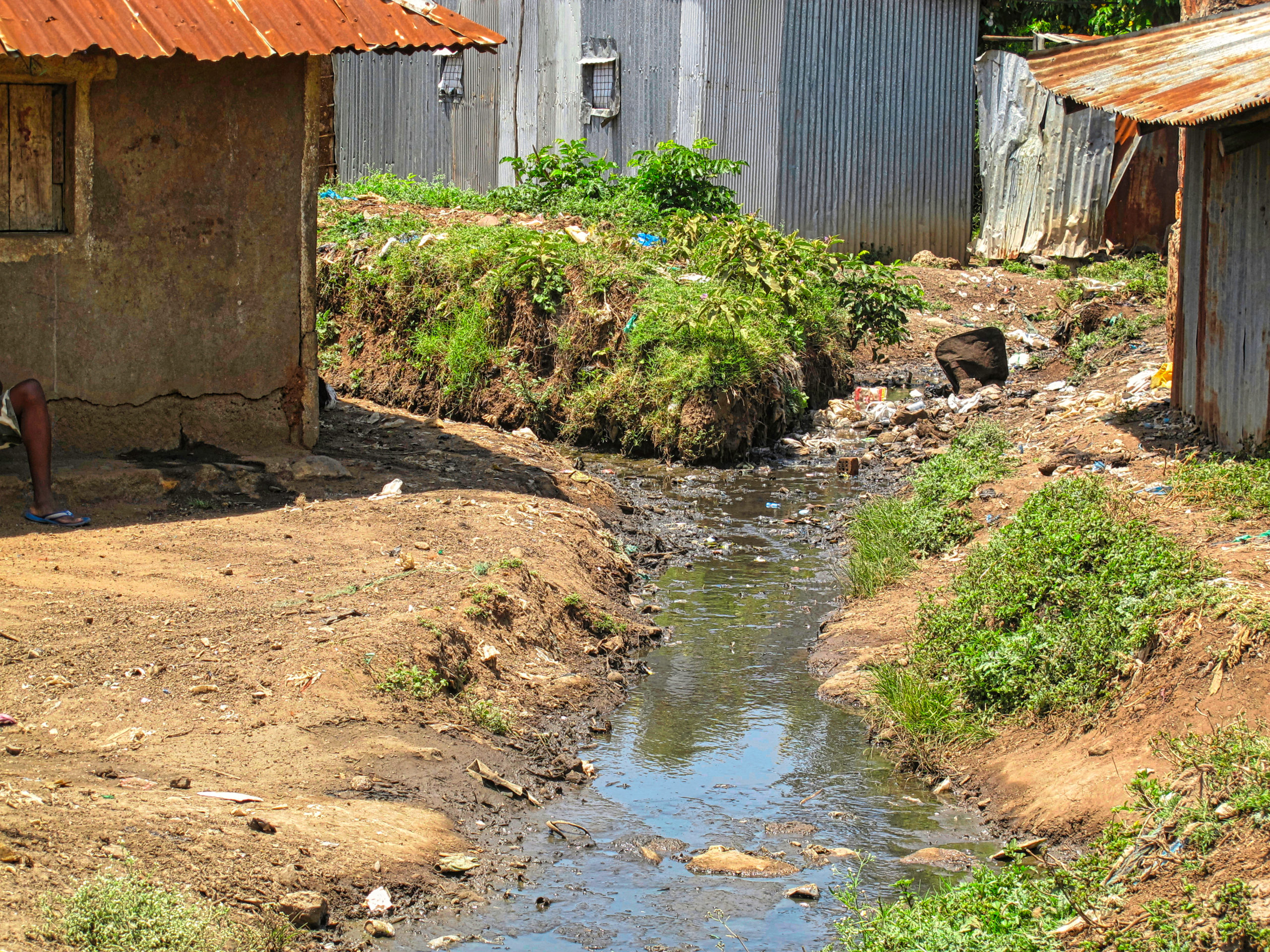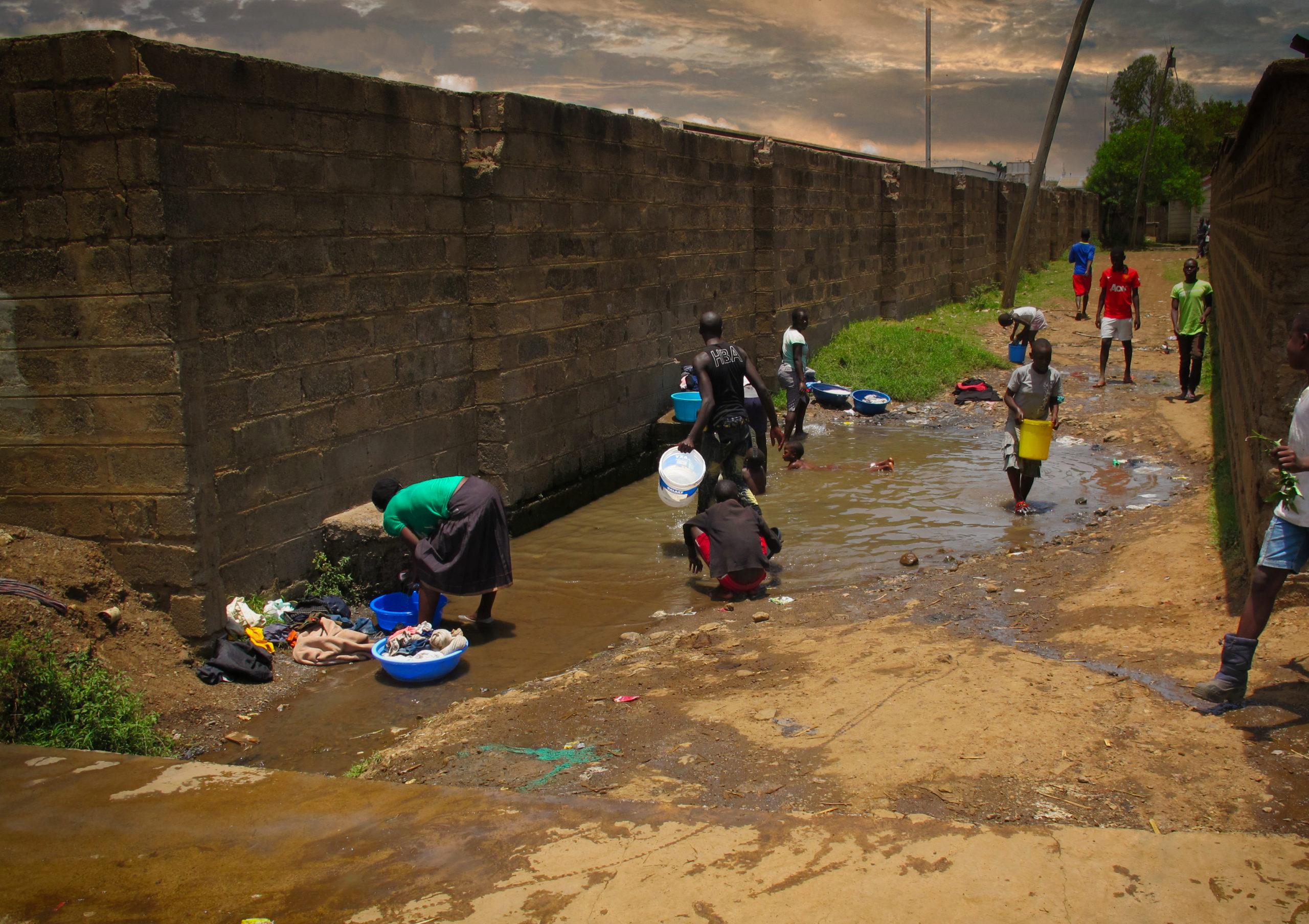Global Supply of Cholera Vaccine Critically Low
Shortage Occurring Amid Upsurge in Deadly Outbreaks
By Allison Kozicharow; Edited by Elizabeth Fine
Cholera vaccine stockpiles are depleted, and health ministries and vaccine makers are scrambling to rebuild the supply.
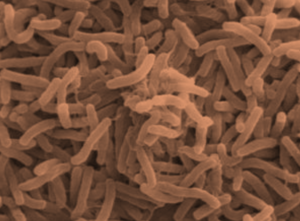
Cholera — a disease controlled and treated successfully since the 1800s — is on the upsurge. Why? The World Health Organization (WHO) reports that in addition to severe vaccine shortages, the reasons include overburdened health agencies, multiple outbreaks, humanitarian crises, fragile health systems, conflict and war and the effects of climate change. Sadly, these conditions affect mostly underserved communities already isolated and disfranchised.
What is cholera? According to WHO, “Cholera is an acute diarrhoeal infection caused by ingestion of food or water contaminated with the bacterium Vibrio cholerae.” WHO reports that researchers have found that “each year there are 1.3 to 4.0 million cases of cholera, and 21,000 to 143,000 deaths worldwide due to cholera.”
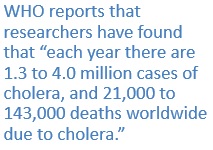 WiRED International offers a cholera module for general audiences in English, French, Spanish and Ukrainian. The course describes cholera and its prevention, transmission, symptoms, treatment and complications. Also, the module contains a technical section designed for medical professionals that gives information about cholera treatment and vaccines.
WiRED International offers a cholera module for general audiences in English, French, Spanish and Ukrainian. The course describes cholera and its prevention, transmission, symptoms, treatment and complications. Also, the module contains a technical section designed for medical professionals that gives information about cholera treatment and vaccines.
During the COVID-19 pandemic WiRED trained our community health workers (CHWs) in Kisumu, Kenya to set up shot clinics and administer vaccines. Conditions for cholera vaccine distribution are different, however, because of supply shortfalls, and it is unlikely that our CHWs will get involved in shot clinics. Should vaccine stocks arrive in large quantities, though, if called upon, the CHWs can facilitate administration.
 Short of vaccines, can the CHWs help prepare communities for a cholera outbreak? Yes, they can! They can teach their communities about appropriate measures to minimize infection and to treat dehydration, which is a deadly outcome of cholera.
Short of vaccines, can the CHWs help prepare communities for a cholera outbreak? Yes, they can! They can teach their communities about appropriate measures to minimize infection and to treat dehydration, which is a deadly outcome of cholera.
Specifically, CHWs can make these contributions by using WiRED’s cholera module to teach their populations about:
Prevention
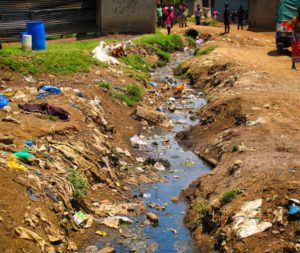 Improving sanitation measures (especially related to water)
Improving sanitation measures (especially related to water)- Informing community members about water treatment measures (including boiling, and adding chlorine)
Treatment
- Antibiotics
- Zinc
- Oral hydration therapy, the administration of oral hydration solution to restore fluids and salts (see sidebar).
Cholera outbreaks underline the importance of general health education for people in low-resource communities and the need for well-trained community health workers to educate these populations about the disease.
What is Oral Hydration Therapy?
Oral hydration therapy (ORT) is the primary cholera treatment. ORT is a simple and inexpensive ministration of an oral rehydration solution (ORS), which if given promptly to patients restores the fluids and salts lost through diarrhea. ORS packets are available at health centers, clinics and stores and then mixed with clean or boiled drinking water. If ORS packets are not available, homemade solutions of sugar and salt used in the correct proportions offer effective treatments. The Cholera module offers proper mixing instructions.
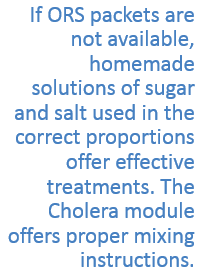 NOTE: Dr. Robert Northrup, a WiRED Advisory Board member, is an expert in global medicine and closely involved with the promotion of life-saving therapies such as ORT. Northrup’s team at the IDDR,B developed the formula for making ORT at home from correct proportions of salt and sugar.
NOTE: Dr. Robert Northrup, a WiRED Advisory Board member, is an expert in global medicine and closely involved with the promotion of life-saving therapies such as ORT. Northrup’s team at the IDDR,B developed the formula for making ORT at home from correct proportions of salt and sugar.
Prevent cholera by
- Washing hands, especially before preparing food and eating it
- Thoroughly cooking food and eating it while it is hot
- Boiling or treating drinking water
- Using sanitary facilities and keeping them clean
